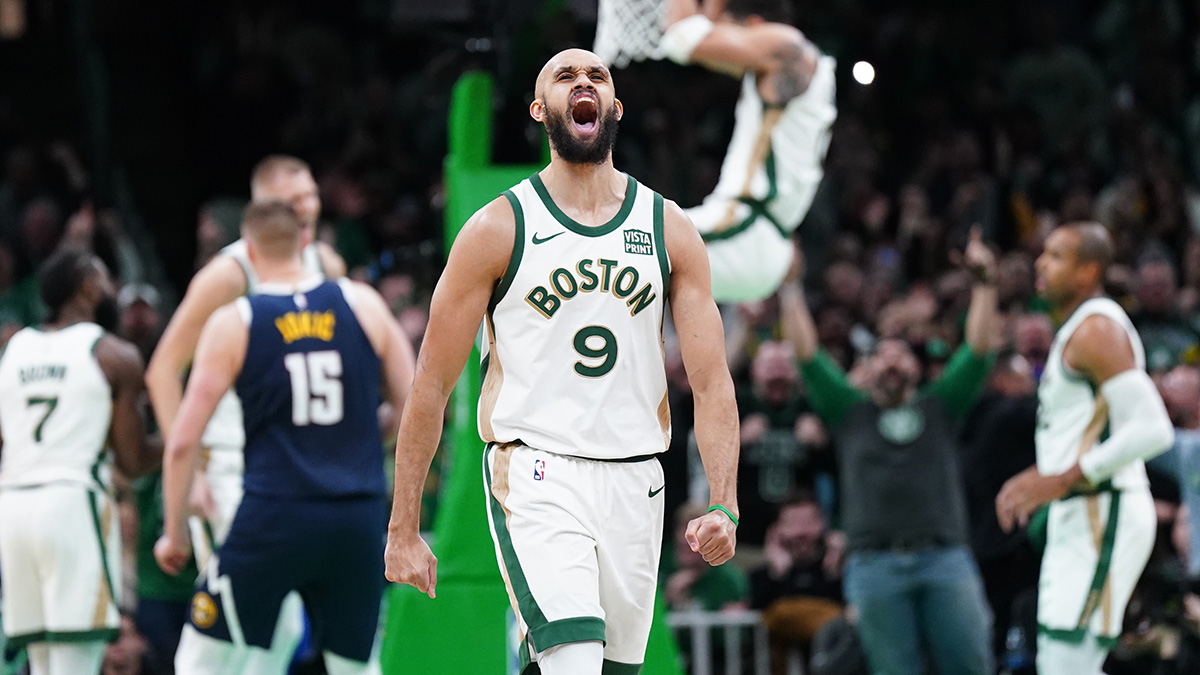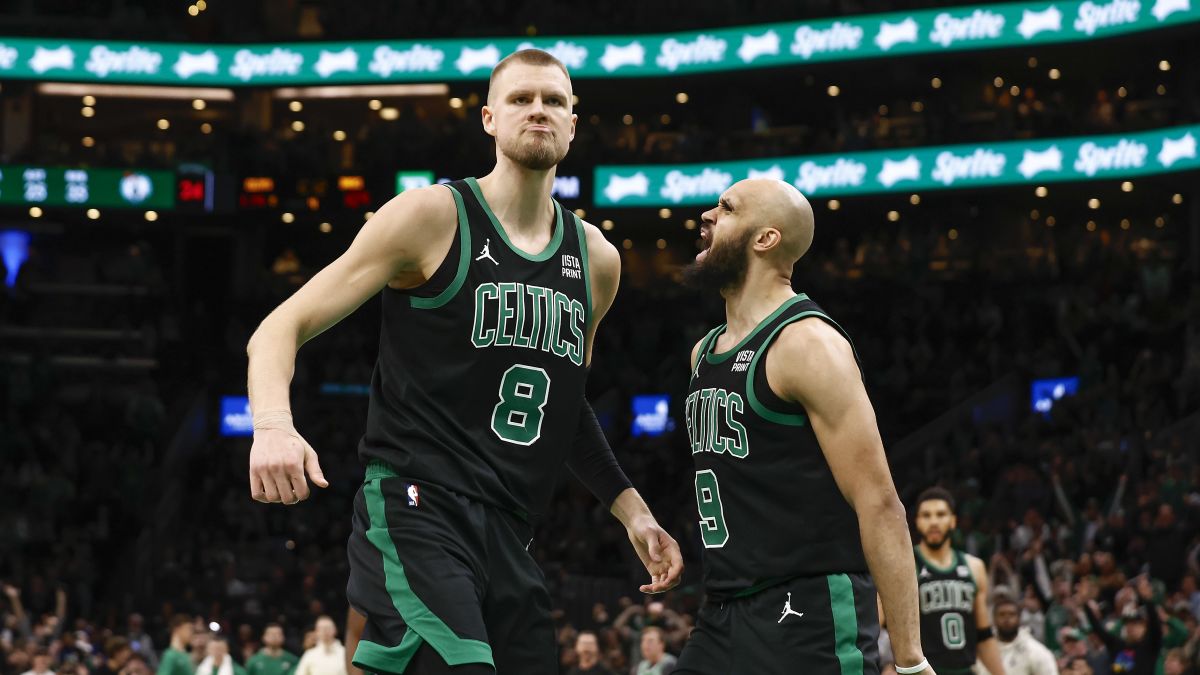BOSTON – There’s a certain love-hate relationship that develops over time between a head coach and their best player.
Look around the NBA landscape.
We’ve seen it with LeBron James and coaches in both Miami and Cleveland. We’ve seen it right here in Boston recently with Doc Rivers and Paul Pierce.
You see it with DeMarcus Cousins and … ok, bad example.
But the point is, elite players are going to have a difference of opinion with their head coach from time to time, and sometimes it’ll go public which was exactly what we saw play out between Isaiah Thomas and Brad Stevens over the weekend after Boston’s 104-88 loss to Golden State.
The Celtics were getting blown away by Golden State on Friday night.
Stevens made a bunch of lineup changes in the third quarter, trying to at least get his team back to competing.
Boston Celtics
They did, but did so with Thomas on the bench for decent amount of time.
Thomas didn’t play his usual minutes.
The Celtics didn’t win.
After the game, Thomas was pissed about it and said among other things that the entire team quit on the game, coaching staff included.
You know what?
The harsh criticism by Thomas was on point.
Injuries or not, Boston didn’t compete for most of that game which is an indictment on both the players and the coaches.
But to say they all quit?
Thomas was dead-wrong about that, which is the only issue I had with his comments that for the most part were spot-on.
The talk about them quitting was not even close to what happened.
In fact, Stevens did exactly the opposite of that.
He went with different player combinations hoping he could find a lightning-in-a-bottle grouping that could spark the team after falling behind by 30 points with more than a quarter left to play.
Stevens’ cut-and-paste groupings took a sure-fire blowout loss and trimmed it to what became a decisive Golden State victory which was major progress considering how poorly the Celtics played when Stevens was sticking with his usual lineup to start the third quarter.
The fourth quarter lineup had a chance to make it a 15-point game with just under six minutes to play but Avery Bradley missed a lay-up.
Another Bradley missed followed by a 3-pointer off the mark by Jaylen Brown, prevented Boston from making it a 14 or 13-point game with just over four minutes to play.
The Celtics cut the deficit to 11 points (99-88) with 1:26 to play, but the hole was too deep to make up in such a little amount of time especially against arguably the best offensive team in the NBA.
So yes, Thomas had every right to steamed about the defeat.
And yes, placing the blame on the entire team – coaching staff included – was an appropriate response to the kind of game the Celtics played.
But quitting is something this team just doesn’t do.
Stevens has been around us long enough for us to know that’s just not happening.
And if he senses a player isn’t giving his best or is just having a rough night, he’ll take him out and try to find a spark elsewhere.
That’s exactly what he did with Thomas who played a season-low 28 minutes while missing four of his 12 shot attempts.
The game was decided by a blistering third quarter for Golden State in which they outscored Boston 31-9.
With Thomas on the floor in the third, the Warriors had outscored Boston 24-4.
And when Thomas returned with about five minutes to play in the game, he didn’t provide the kind of late-game punch they needed with the Celtics edging Golden State at that time when he was on the floor, 10-7.
After getting on a plane to Detroit after the loss, it was clear that Thomas had reflected upon the words he said and knew the potential problems they might create if he didn’t do something about it.
So shortly after the team arrived in Detroit, he reached out to Stevens.
“I just called him and let him know how I felt,” Thomas told reporters Saturday night. “And deep down he knows who I am. I’m not one to bash anybody; I’ve never done that. He knows I want to win. And my teammates know I want to win and I’ll do whatever it takes. I just called him to let him know I wasn’t calling anybody out; that’s just how I felt. I was frustrated. He knows I mean well.”
The whole incident serves as a reminder of the love-hate relationship these two guys have with one another.
Both love to win and in being so passionate about that, there’s only one emotion adequately suited for losing – hate – which is the common thread that binds these two in a way that will serve them and the Celtics well going forward.


